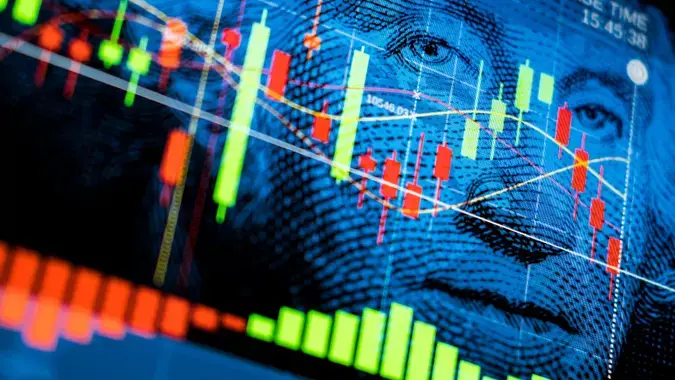In 2023, the Fed raised interest rates to unprecedented heights, reaching up to 5.5%, the highest level in more than two decades.
The purpose of raising interest rates is straightforward: to combat inflation. How? When the Fed raises interest rates, the cost of borrowing rises as well, which explains why people have been struggling with such high mortgage rates recently. When loan activity declines due to high interest rates, spending slows, reducing demand and, ideally, inflation.
Inflation has slowed, indicating that the Fed’s move to raise interest rates has been partially successful. Now the big question is: what will happen to interest rates in 2024? The answers are surprisingly elusive.
It’s impossible to predict for sure.
It’s nearly impossible to predict how the Federal Reserve will handle interest rates in 2024. This is because the economy is unpredictable and can shift direction with little to no notice.
Just look at previous interest rate predictions.
“You can see this by looking back at predictions experts made going into 2021, 2022, and 2023 about where rates would be at year end,” said John Jennings, president and chief strategist of St. Louis Trust & Family Office, an adjunct professor at Washington University in St. Louis in the Olin School of Business in its wealth and asset management graduate program, and author of “The Uncertainty Solution: How to Invest with Confidence in the Face of the Unknown.”
“A compelling example of how hard it is to predict interest rates is to look at the Fed and their predictions of the Fed Funds Rate — which they set,” he said. “In March 2021, when inflation began to rise, the Fed predicted that the Fed Funds rate would remain at essentially zero at the end of 2022, with a range of 0%-1% for the end of 2023. Of course, that was laughably wrong, as the Fed Funds rate ended 2022 at 4.1% and now stands at 5.25%-5.50% in December 2023.
If the Fed cannot accurately predict what will happen to interest rates, who can? All one can do is speculate and hypothesize.
It depends, in part, on inflation.
Though the fate of interest rates remains a mystery, we do know that inflation has a significant impact on how they move.
“Currently, the goal of [a] 2% inflation rate has not been met, and the labor market is strong, with no signs of a recession,” said Dr. Tenpao Lee, an economics professor at Niagara University. “The Fed raised interest rates 11 times in the last 20 months, and its impacts were significant but diminishing marginally; on the other hand, the GDPs were strong in recent months and the so-called soft landing seemed very possible.”
Rates could rise even higher.
If inflation does not fall or rises significantly by 2024, we may face further interest rate hikes.
“If inflation is getting worse, the Fed will raise rates again,” he said.
How the government spends its money is critical in this situation.
“If government spending continues at the current pace, the interest rates investors demand will almost surely go higher, almost forcing the hand of the Fed to raise rates and certainly making it difficult for them to push rates lower,” according to Rod Skyles, a blogger at The Unconventional
Higher interest rates may be harmful. “[They] will negatively impact both consumer and corporate spending, slowing the economy,” Skyles went on to say.
Alternatively, interest rates could go down.
Then again, interest rates could fall. It depends on the overall performance of the economy.
“If a recession is on the horizon, the Fed will cut interest rates accordingly,” he said.
There are also non-economic factors to consider, such as wars in other countries that the United States is interested in. These have a negative impact on the global economy and may lead to “stagflation.”
“In that case, the Fed’s job will be finding balanced solutions for fighting inflation and recession simultaneously,” he said. “If so, I suspect that the Fed’s top priority would be on fighting the recession rather than inflation.”
Ultimately, we just don’t know.
At the end of the day, no one, including financia—axperts and the FeFed!—canrve, can predict what interest rates will be in 2024. We can only continue looking for clues.
“The real question here is if the economy can slow enough to keep rates and inflation in check,” Mr. Skyles said. “It’s unknown. But the best guess for Fed policy in 2024 is that they will do everything they can to keep interest rates from rising further, but the environment is —a conducive to rate cuts — at least not significant ones.
“They will be challenged on one end with massive government borrowing working to push market rates higher and on the other end attempting to create a soft landing for the economy,” Mr. Skyles said. “These opposite forces are likely to see Fed policy remain somewhat stable throughout 2024 unless there are significant changes in government spending or a rapidly slowing economy.”

